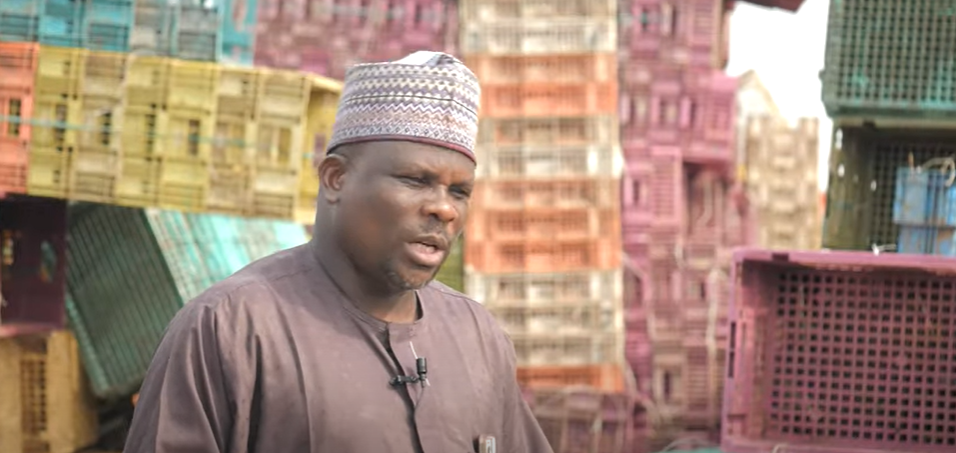
Since 2021, HortiNigeria has been working to build a sustainable and inclusive horticulture sector to boost food and nutrition security in Nigeria. One of the program’s biggest challenges has been post-harvest losses. Now, through HortiNigeria’s targeted strategies, these losses have decreased by an impressive 83% in the program’s intervention areas.
Mallam Kabir Bala, a member of the National Plastic Crate Association, is one of the players driving this reduction in losses through a simple innovation: crate rental.
Before, tomatoes would start to rot before they got to market. Now, they arrive in better condition, sell faster, and I earn money too.
Before venturing into the crate business, Bala worked as a vegetable trader at Lagos’s Mile 12 Market. Day after day, he saw farmers’ produce spoil before it ever reached the market, sometimes within just two to three days.
“It was bad for the farmers, bad for customers, and bad for my business,” Bala said.
In 2023, Bala connected with HortiNigeria, after the program offered members of the National Plastic Crate Association the opportunity to expand their businesses. At the time, he owned just over 2,000 crates and dreamed of growing his business to meet the rising demand. With support from HortiNigeria, and in collaboration with partners, including LECON Finance Company and Celplas Industries, Bala was able to scale up quickly.
Today, Bala owns over 5,000 crates. He rents them out to local farmers and aggregators for a small fee per use. “Before, tomatoes would start to rot before they got to market. Now, they arrive in better condition, sell faster, and I earn money too,” Bala noted.
Bala’s business has also become a source of employment in the country. What started with just two assistants has now grown to a team of over 20 staff across various states. Together, they operate a farm-to-market micro-logistics system, delivering crates to farmers and traders in various markets and collecting them after use.
The use of plastic crates may seem like a small change, but it addresses one of the biggest barriers in Nigeria’s horticulture sector: post-harvest losses. Better yet, it does so while advancing multiple Sustainable Development Goals (SDGs):
- SDG 1: No Poverty
- SDG 8: Decent Work and Economic Growth
- SDG 12: Responsible Consumption and Production
For farmers, this innovation means a reduction in losses and an increase in profits. For Bala, it means a stable income and a business he can continue to build. For the horticulture sector, it means better practices are becoming increasingly popular – not because they are enforced, but because they work.
The promotion of plastic crates is just one way HortiNigeria is bringing about real change in people’s lives. The program’s interventions are transforming the horticulture sector into a system that benefits everyone.
HortiNigeria (2021-2025) is funded by the Embassy of the Kingdom of the Netherlands in Nigeria and implemented by IFDC, together with KIT Institute and East-West Seed Knowledge Transfer Foundation (EWS-KT).





